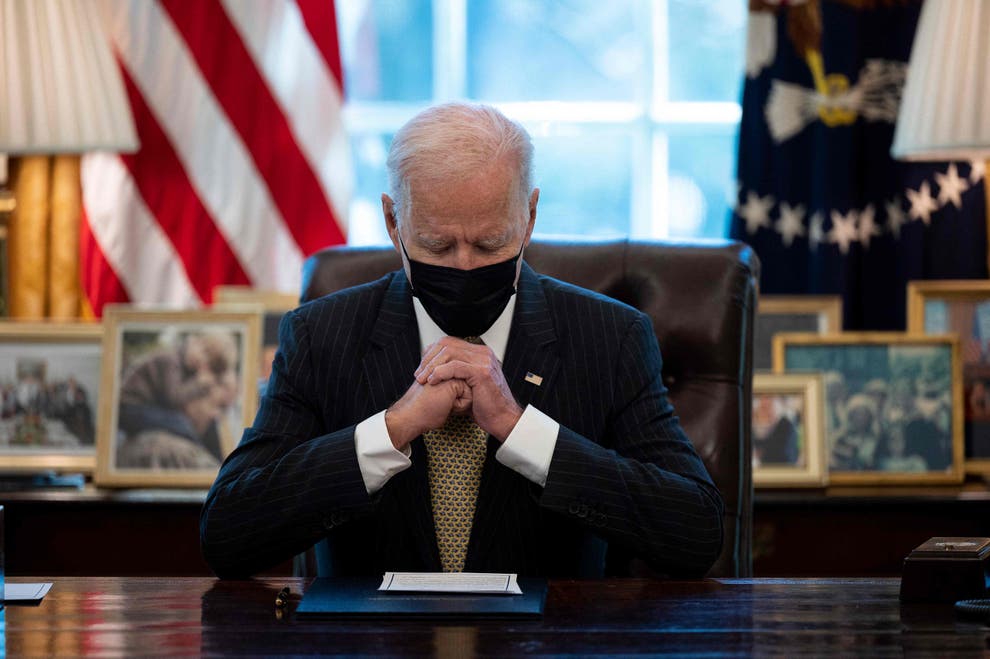![US President Joe Biden delivers remarks on the national economy and the need for his administration's proposed $1.9 trillion coronavirus relief legislation in the State Dining Room at the White House on 5 February 2021 in Washington, DC. [Stefani Reynolds-Pool/Getty Images]](https://i1.wp.com/www.middleeastmonitor.com/wp-content/uploads/2021/02/GettyImages-1300545443.jpg?resize=1200%2C800&quality=85&strip=all&zoom=1&ssl=1)
Unlike Trump (2017-2021), the Biden administration does not tolerate the abuses committed by Haftar’s militia, according to a report issued last Tuesday by the US Department of State on human rights for the year 2020.
The report accused Haftar’s militia of being involved in arbitrary and unlawful killings, enforced disappearances, torture and recruiting and using children in the conflict.
The report referred to pro-Haftar factions, which seized the city of Sirte and abducted and detained many civilians who expressed their loyalty to the Government of National Accord (GNA), in addition to the crimes committed by Al-Kani militia in the city of Tarhuna.
The report indicates Washington’s position on Haftar’s militia, in light of the spread of assassinations and kidnappings, especially in Benghazi, where the security situation is unstable.
US Secretary of State Antony Blinken confirmed during the presentation of the report that: “All the tools available to our diplomatic body will be used to defend human rights and hold those who commit violations accountable.”
US National Security Advisor Jake Sullivan issued a statement on 12 March, in which he emphasized ongoing work: “To tighten accountability measures against any party that seeks to undermine the election’s roadmap fixed by the Libyans.”
This message was primarily addressed to Haftar, who thwarted previous attempts to hold elections on 10 December 2018, as stipulated in the Paris Agreement, and in the spring of 2019, according to the Palermo conference agreements reached by the Libyan parties to the conflict.
Haftar chose the spring of 2019 as the date to launch a major attack on Tripoli instead of holding elections, especially after the infamous call he held with the Trump administration, giving him the “orange light” to continue the fighting that lasted 14 months. As a result, thousands of fatalities and injuries occurred.
The new date for presidential and parliamentary elections in Libya is 24 December 2021, as per an accord reached by the parties to the conflict during their meeting in Tunisia last November.
The US and the United Nations (UN) are hoping for credible elections and providing essential public services to end the conflict in the country, through implementing an inclusive political process according to Blinken, who recently called Head of the Libyan Government of National Unity Abdul Hamid Dbeibeh.


